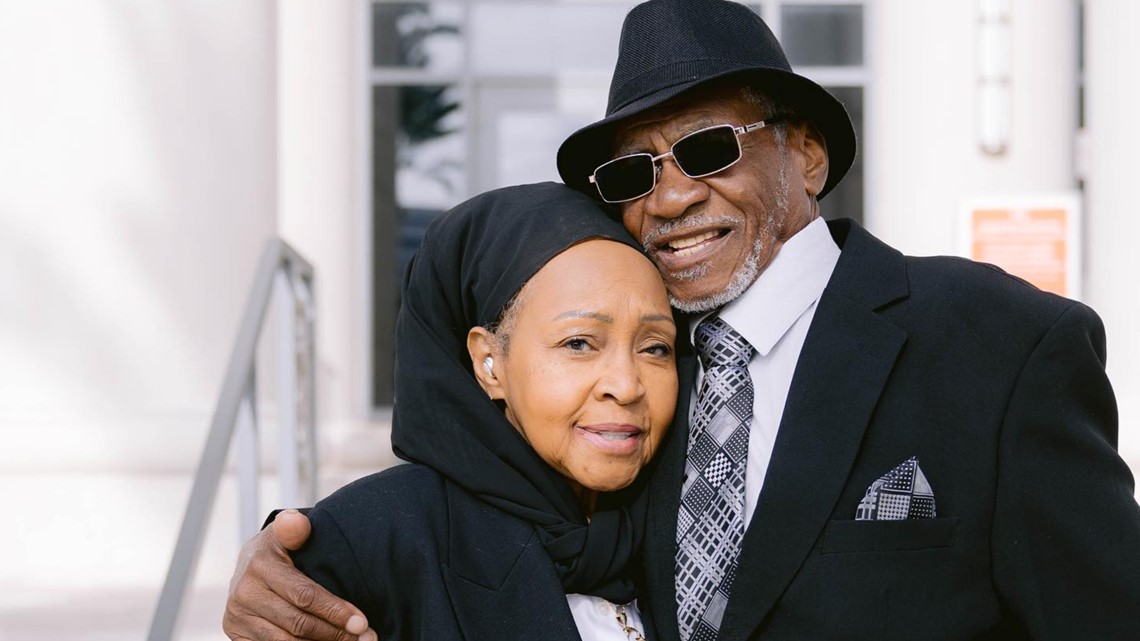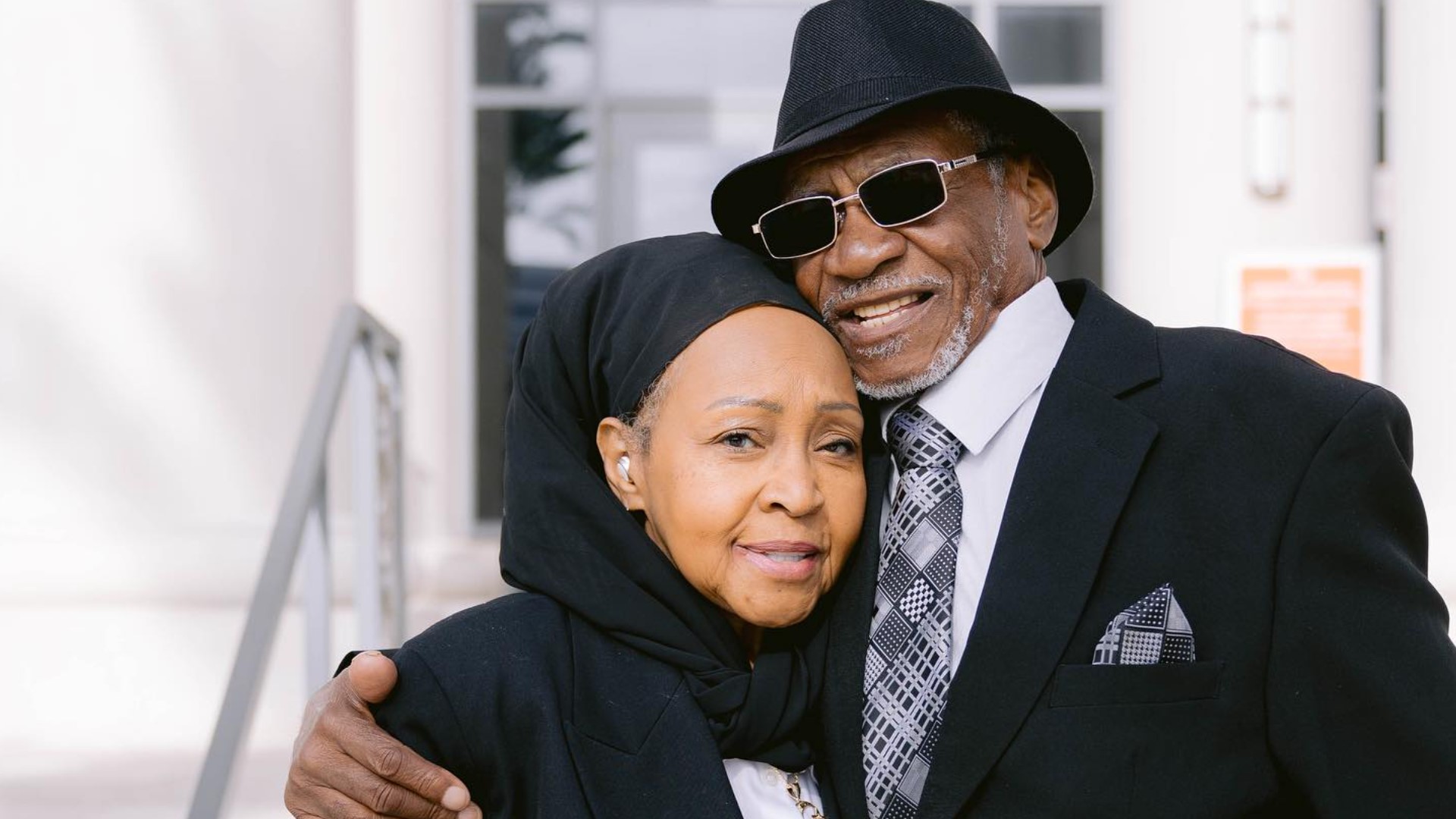JACKSONVILLE, Fla. — A Jacksonville man who was wrongfully convicted in 1976, spending almost 45 years in prison, filed a federal civil rights lawsuit Wednesday against the City of Jacksonville, Duval County and Jacksonville Sheriff's Office, according to a news release.
Willie Williams Jr., 79, was sentenced to life in prison for the attempted murder and armed robbery of Kathrina Farah and David Phillips, according to the lawsuit, and in 2020, he was released on early parole.
The lawsuit names multiple JSO detectives, accusing them of fabricating evidence and police reports, including documentation stating the victim in the case was hypnotized to remember the suspect.
The lawsuit lists Charles David Ritchey, W.J. Mooneyham, J.R. Starling, Hugh Fletcher, and now deceased Lieutenant Bryant Randolph Mickler and Detective James Geisenburg as specific defendants in the case.
Williams' conviction in the robbery depended on the testimony of one of the victims who had been shot. According to Williams' attorney and legal director of The Innocence Project of Florida, Brandon Scheck, the man who identified him had previously confessed he did not remember who the shooter was.
"The State indicated to the jury that it should believe in this identification because the victim would never forget the shooter's face...Unbeknownst to Mr. Williams or his counsel at the time of the trial and contrary to the State's characterization of the strength of the victim's identification, the victim who identified Williams as the shooter did in fact forget his face," Scheck wrote in a previous news release.
The victim could not identify Williams or another suspect in the case when shown a photo lineup, Scheck said. The victim later made an identification "after being hypnotized" by JSO detectives to attempt and improve his memory, the lawsuit states.
"The detectives allegedly framed Mr. Williams by suppressing and destroying exonerating evidence, manufacturing fake evidence, including using junk 'science' to wrongfully convict him," the release states. "No physical evidence ever connected Williams to the crime and he consistently maintained his innocence throughout the decades."
Scheck notes that this method, even at the time, has been proven unreliable and that "courts had already held that use of hypnosis to produce testimony was a violation of defendants’ due process rights." He says neither law enforcement nor prosecutors were told about the hypnotism.
At the original trial, Williams' lawyer tried to contest the identification and ask for a mistrial.
Scheck says JSO "aggressively pursued" Williams' conviction, "despite knowing of significant evidence that pointed to the guilt of another man, who committed suicide shortly after committing the crimes," the release states.
Transcripts from the trial show the lawyer requested to have a hearing without the jury present to discuss the validity of the identification. He also alleged that one of the line-ups where the victim chose Williams as the perpetrator was "impermissibly suggestive," and tried to argue that the in-court identification was tainted.
This request was denied, and Williams was convicted.
New evidence in the case was uncovered by a Conviction Integrity Review (CIR) investigation by the office of State Attorney Melissa Nelson. This investigation began after Williams claimed he had been wrongfully convicted in 2021.
After the conclusion of this investigation, all charges against Williams were dropped.
Williams forced to do 'slave-like prison labor in chain-gang shackles'
During Williams' wrongful incarceration, he was forced to do manual labor in "harsh and inhumane conditions," according to the release.
"Throughout his time in prison, Mr. Williams also was forced to work without pay or other privileges," the release states. "At times, he undertook this compelled labor at serious risk to his health and safety. For example, at the beginning of his sentence Mr. Williams was assigned to a chain-gang for six months. During that time, he worked in roadside ditches, fully shackled. The ditches were also teeming with wild snakes, which Mr. Williams had to take care to avoid on top of the already heavy manual labor he was forced to complete. Armed guards would also shoot at these snakes, which added yet another element of physical danger and psychological distress. In another example, Mr. Williams was forced to work at the prison infirmary where he regularly cleaned up blood and other biohazards without being provided any personal protective equipment by the prison. As a result of the exposure to infected blood and lack of PPE, Mr. Williams suffered injuries."
The release says while Williams was incarcerated, he lost his mother, father, sister, wife, three aunts and two nephews, and was also denied the opportunity to attend their funeral services.
"Willie has suffered a grave injustice and lost much of his life as a result of police misconduct," Paul Wright, executive director of the Human Rights Defense Center in Lake Worth, Fla., said in the release. "This is an opportunity for the City of Jacksonville to make amends and right the wrong it has committed."
First Coast News reached out to the City of Jacksonville and JSO after the lawsuit was filed.
The sheriff's office issued a statement, saying "Due to pending litigation, we are unable to comment."
First Coast News is waiting to hear back from the city.
"While nothing can return the 44 years that Willie lost, this lawsuit is a step towards justice and vindication for Willie and his loved ones,” Jon Loevy, one of Williams’ attorneys at Loevy + Loevy added. “Willie should get justice as swiftly as he was wrongfully convicted.”
In a statement Wednesday, State Attorney's Office Communications Director David Chapman said: "Mr. Williams received relief when his sentence was vacated. Though admissible into evidence in the 1970s, the State did not disclose to the defendant’s attorneys that investigating detectives used hypnosis during their investigation. This failure resulted in the defendant receiving a new trial. With the passage of time and the loss of critical witnesses, the State could not proceed. During our investigation, there were no findings to support a claim of exoneration, innocence, or that law enforcement conspired against Mr. Williams.”


RELATED: Nocatee builder accused of leaving Capt. Sandy, other homes unfinished has nine lawsuits against him

